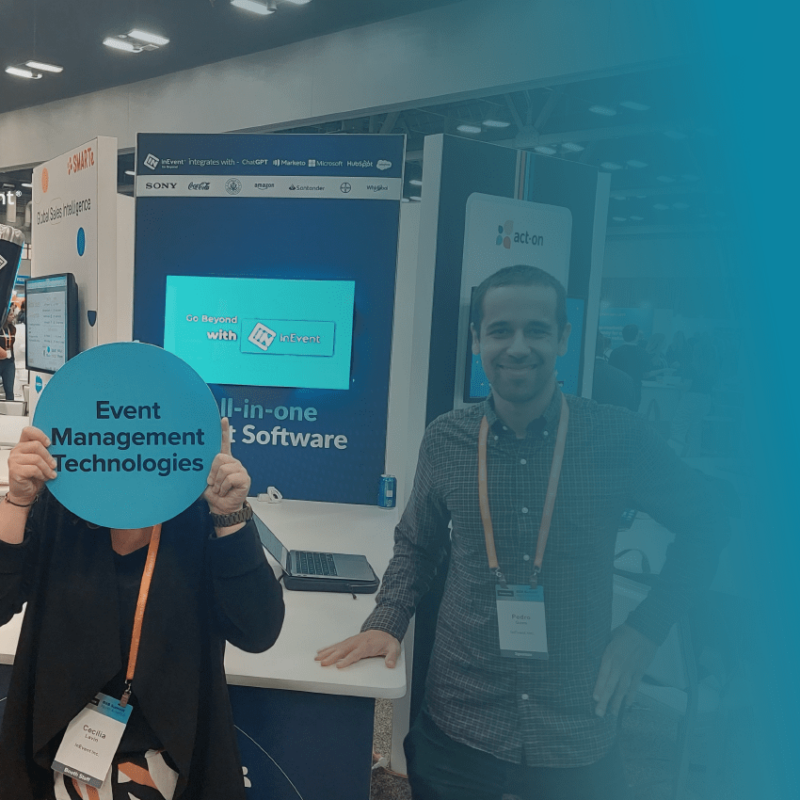How to Become a Corporate Event Planner
Do you ever take charge when planning family get-togethers or work events? If so, you could have what it takes to be an event planner. And among these skilled professionals, corporate event planning is the major league.
A corporate event planner typically faces higher stakes and more challenging scenarios. They work with larger budgets and crowds to organize product launches, conferences, training events, and more. In return, they often enjoy higher earning power, steady work, and rewarding opportunities.
Need proof? According to the Bureau of Labor Statistics, the corporate event planning field is expected to grow by 18% by 2031.
The earning power in this role is also excellent, with a median annual wage of $49,470, while top earners in the field report incomes of over $96,230. Job outlook, wages, and benefits depend on factors like location, experience, and demand in your area. But there’s no doubt the field holds significant promise.
The way into this industry – and the path to success – isn’t always clear. But we’re here to help. This guide will explore what it means to be a corporate event planner and how to kickstart your career.
What is a Corporate Event Planner?
Simply put, a corporate event planner specializes in organizing and managing events for companies and organizations. They can work freelance, for an events management agency, or a specific (often larger) company as an in-house coordinator.
As an event planner, your primary responsibility is to plan, coordinate, and execute events. This might include anything from conferences, seminars, and trade shows to product launches, fundraisers, and employee appreciation events.
The work requires close collaboration with each client to understand their objectives, goals, and budget, and to develop a comprehensive – and flexible – event plan.
As part of this, common responsibilities include:
- Selecting venues
- Managing vendors
- Overseeing logistics
- Creating event agendas
- Coordinating audio/visual requirements
- Sending timely text reminders
- Overseeing the successful execution of the event
You may also be tasked with hiring and coordinating with entertainers, guest speakers, and vendors.
What Skills Do You Need?
Event planning is a lot more complex than organizing small, private get-togethers. Being successful in the role requires a breadth of skills, such as event management, creative thinking, problem-solving, organization, and attention to detail.
Being adept in these skills enables you to ensure any event runs smoothly, meets the client’s objectives, and leaves a positive impression on attendees (and potential future clients).
Corporate event planners work closely with clients, vendors, event staff, and attendees to deliver a successful and memorable event experience. For that reason, they also need excellent people skills, to be approachable, and to communicate clearly and promptly.
7 Steps to Becoming a Corporate Event Planner
So, you know what the job requires – now how do you get it? While there are no hard and fast rules to becoming a corporate event planner, there are a few steps common in most planners’ career paths. Here’s what you need to know.
- Do Your Research
Before you dive in, do a quick Google search using a term like “corporate event planning [your city]”. This will give you insight into whether there’s any demand in your area, and if so, how much.
If your search uncovers pages full of results, great! You may face plenty of competition, but this also shows there’s an opportunity to build your career. On the other hand, if you don’t see much promise, you might have to relocate to a city where you’ll find it easier to get work as an entry-level employee.
If there doesn’t seem to be much of a market for event planning in your area or you’re unable or unwilling to relocate, don’t worry. You can still pursue a career in this field if you focus on offering something unique, such as virtual or hybrid corporate planning services.
To make yourself as flexible and responsive for clients as possible, you may need to invest in remote-working tools like VoIP phone services or remote desktop software.
- Earn a Degree
Plenty of universities and colleges offer degrees in event management. But remember other educational paths can lead to a career in event planning, too. These include business administration, public relations, communications, and hospitality management.
While these courses aren’t essential, they will help you learn many valuable skills and information. Plus, you can start networking while studying and burnish your credentials with qualifications from a well-regarded program.
- Invest in Professional Certifications
If you want to enhance your event planning qualifications beyond an undergraduate degree, pursuing a certificate can be a useful option. Certificates provide an opportunity to supplement your expertise in a specific industry. They’re especially beneficial for niche areas like corporate event planning.
You might consider obtaining a certificate in event planning subjects, such as:
- Digital events
- Trade shows
- Business travel
- Catering
- Exhibition management
- Marketing
- Public relations
A resume showcasing a relevant degree topped off with certificates demonstrating your niche skill set can go a long way towards helping you stand out from the crowd.
- Build Your Skills
When starting out in a field where success depends on experience, it can be a challenge to get your foot in the door. Don’t despair, though: a great way to build your skills is to volunteer or plan a few events for friends and family.
Charities, community organizations, and other non-profit groups often hold events like fundraising drives that require an event planner to handle hiring entertainment, venues, or caterers. You could also offer to plan weddings, family reunions, or other private events for friends and family.
You might not get paid for this work (in fact, you’re more likely to get the job if you offer to do it pro bono). But you could stand to gain a wealth of experience that will show off your problem-solving skills and creativity.
Remember to document any event you organize to help potential clients see how seriously you take your work and what you’re capable of. An ultra-searchable .io domain for your professional website can be a valuable asset for sharing the results of your work, building your brand, and growing your network.
Taking photos and keeping records of these events are crucial, but don’t stop there. Create detailed portfolios that include budgets, timelines, vendor lists, and actionable feedback from participants and clients. And if you’re handling any financial aspects of the events, make a receipt online. This not only adds to your professionalism but also helps in keeping clear financial records for both you and your clients.
- Find Relevant Work
If you’re unsure of how to break into event planning on your own, you can always work with established professionals to gain first-hand experience.
Working as an assistant or intern will give you insight into what event planning involves, industry-specific challenges, and how the experts succeed. It can also give you a chance to get to grips with the latest technology.
This might include event management software that streamlines the registration process, floor plan diagramming platforms to tweak event layouts, and cloud phone systems that allow you to keep up to date with suppliers, vendors, and clients while on the go.
A similar approach is to find work in an administrative role. Business administrators handle much of the nuts and bolts of corporate organization, from scheduling meetings to booking travel and managing budgets. Serving as a corporate event planner’s assistant or intern can also give you great insight into more advanced aspects of the job.
Alongside other duties, administrative staff are often given corporate event planning tasks. For example, they might assist with scheduling meetings, booking travel, or working with vendors — all easily transferable skills for those who want to get into event planning.
- Apply for Agency or Internal Positions
By this stage, you should have enough experience and qualifications to make yourself an asset to anyone in need of event planning. All that’s left is to get to work.
You’ll have two options when setting out to find your next job. The first is applying for internal event planning positions with a medium or larger company. This will give you an opportunity to work full-time in your new field. Look for openings in meeting management, marketing, communications, or public relations departments.
The other option is to look for opportunities with a dedicated corporate event planning agency. This might be the better route if you want to broaden your range of experiences as much as possible. Event planning agencies work with multiple clients on a variety of projects. That means more chances to build your skill set, network, and portfolio.
Whichever route you choose, you’ll gain valuable skills and experience. On top of this, you’ll establish useful contacts and become familiar with the latest planning and communication tools, resources, and industry trends.
- Go Freelance
If you don’t want to take on a full-time position with one company, you can always go freelance. This route may not be for everyone. But it can be a highly rewarding experience for those who find they have a knack for it.
However, it can take a while to build up the client base you need when starting from scratch. Plus, you’ll have to invest significant time and resources in building your brand online, and leveraging new contracts.
You’ll also have to research and invest in tools and assets. This might include finding the most cost-effective cloud storage service for managing each project and researching the best electronic fax as part of your communications strategy.
On the upside, freelancers can choose their clients and projects, set their own rates, negotiate contracts independently, and raise their prices as they build their reputation.
Conclusion
The field of corporate event planning offers promising opportunities for those who have the talent and determination to build the right skills and grow a network of satisfied clients. If you’re the right person for the job, you can look forward to a long and rewarding career with high earning potential and job stability as the industry undergoes significant growth in the coming years.
Whether you’re looking to pursue opportunities with agencies, internal roles, or venture into freelance work, dedication, a positive attitude, and a few basic tools are all you need to thrive in this exciting industry.











